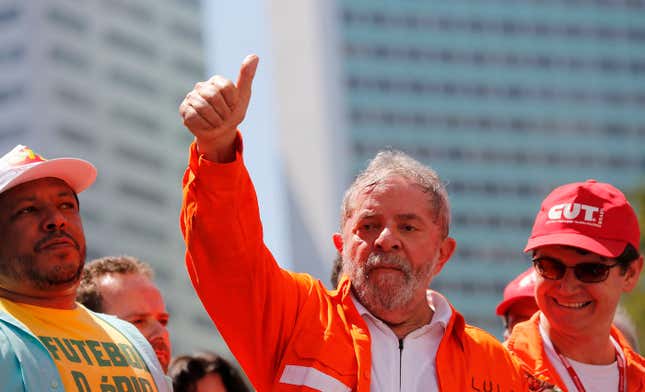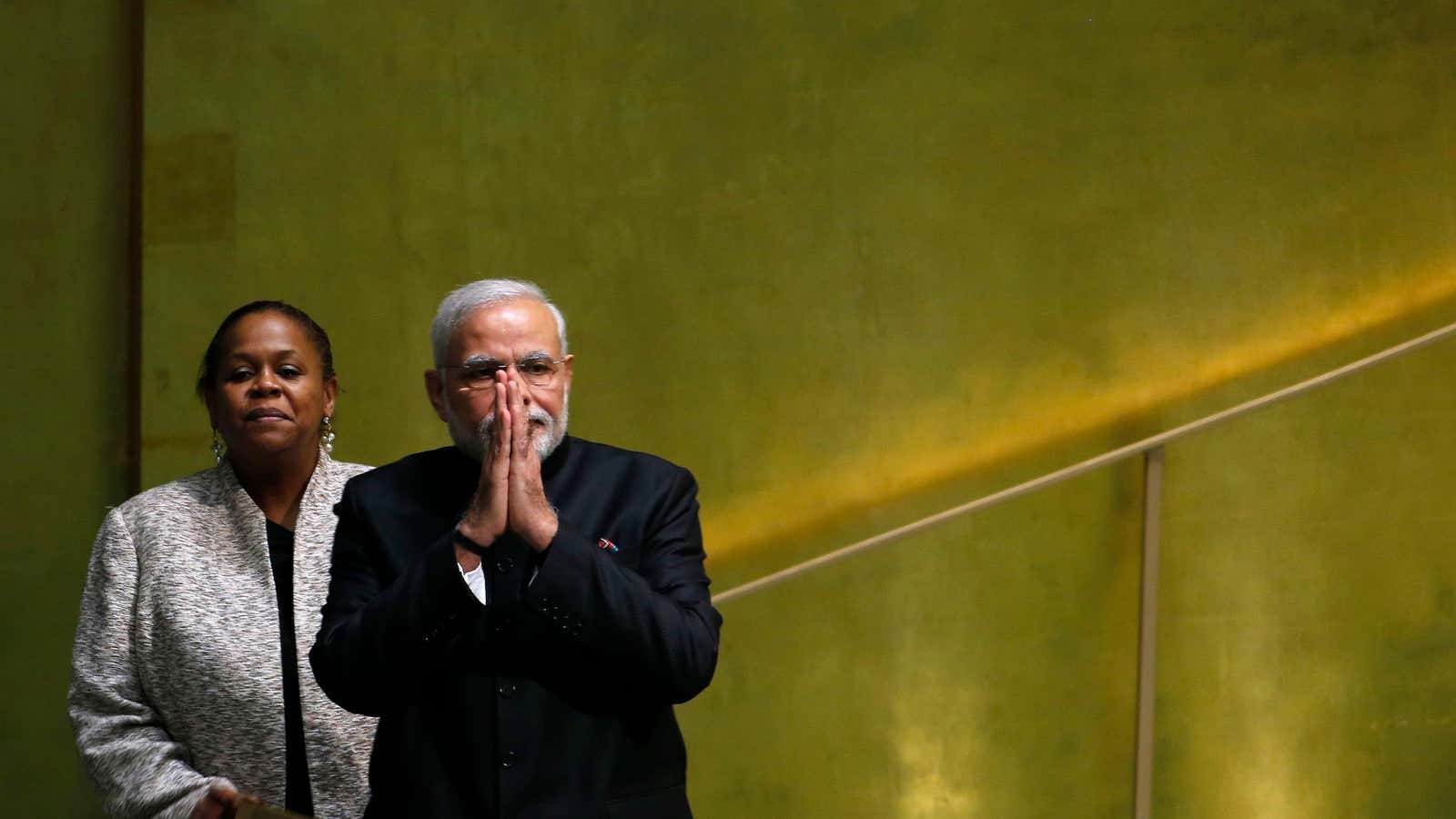Narendra Modi’s rise to the top of Indian politics took place in May when he was elected as the country’s new prime minister in a landslide victory. His rise to the top of global politics began this weekend.
Modi speaks today in a sold-out appearance at Madison Square Garden in New York, which demonstrates both his mass appeal away from home and the size of the Indian disapora. Yesterday Modi spoke at the UN General Assembly and touched on themes including spreading democracy, fighting terrorism, protecting the environment, and encouraging the aspirations of people not just in India, but around the world.
“No one country or group of countries can determine the course of this world,” Modi said. “There has to be a genuine international partnership… I say this from the conviction of the philosophical tradition that I come from.”
His words, and the manner in which he conveyed them, suggests that the world again has a leader who speaks for the billions of non-Westerners whose interests, although acknowledged, are often ignored. One they haven’t had since January 2011, when Brazil’s Luiz Inacio Lula da Silva left office.
Lula was once labeled the “most popular politician on Earth,” by Barack Obama. It was no exaggeration. A former auto worker and founder of the socialist Worker’s Party, Lula—as he became known—escaped poverty and embraced market-friendly policies that helped Brazil to become one of the fastest-growing countries in the world. He was also a leader in poverty alleviation through programs like Bolsa Familia, where families are paid a monthly stipend to send their children to school and get health checks. But it was on the world stage that he really captured the imaginations of the poor around the world by talking tough to wealthy countries.

Lula regularly spoke about how multi-lateral institutions like the IMF and World Bank favored rich countries and rejected their policies. In the midst of the financial crisis, he famously blamed “the blue-eyed bankers” for the troubles that befell the world economy. He explained what he meant to PBS:
I am married with a woman that has blonde hair and blue eyes. The problem is that when I gave this interview, I was with [former British prime minister] Gordon Brown. He was in Brazil. And there was a persecution going on to the immigrants, especially in Europe—the blacks in Europe, the Latinos—and I said very clearly, the crisis was caused not by blacks or by Latinos, the crisis was caused by the bankers that have blue eyes.
Since Lula left the world stage, the global poor has been lacking a leader to stand up for it. Modi could be that person, although the parallels with Lula are not perfect. Modi hails from the Indian right and Lula came from the Brazilian left, though both surround themselves with technocrats to help with the actual running of government. Different as Modi and Lula may be, the Indian prime minister is emphasizing many of the same issues his Brazilian counterpart spoke about a decade ago
At the UN, Modi touched on international trade and “more inclusive development.” Lula helped kill the so-called Doha round of World Trade Organization talks—began in 2001 and still unfinished to this day—over disagreements about agriculture subsidies and tariffs. Modi also took up one of Lula’s favorite bugbears—reform of the UN Security Council. “Let us fulfill our promise to reform the United Nations Security Council by 2015,” he said. And like Lula did throughout his tenure, Modi acknowledged the plight of the poor: “Billions live on the edge of poverty and want; countries that are barely able to survive a global economic storm.”
As for Modi’s vision for how the emerging world will look in the future:
We can achieve the same level of development, prosperity and well being without necessarily going down the path of reckless consumption. It doesn’t mean that economies will suffer; it will mean that our economies will take on a different character.
In saying so, Modi echoed Lula’s vow to avoid the Chinese model of growth:
We don’t want to be competitive like China is, where there’s no welfare program, where you have no obligation to the workers, pension funds, trade unions, and people earn very low wages. We don’t want that model for us.
It’s still early days, of course. When Modi was elected, he promised “to make the 21st century India’s century.” The hopes of even more than 1.25 billion Indians may rest on his shoulders.




